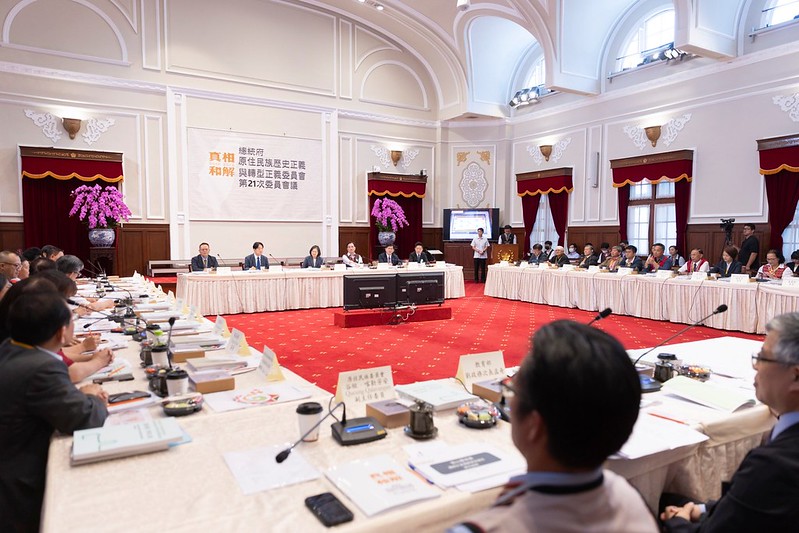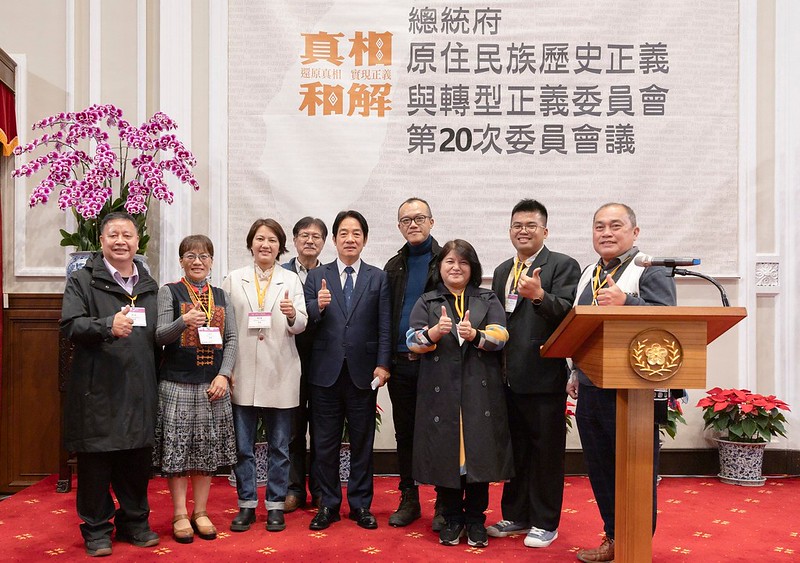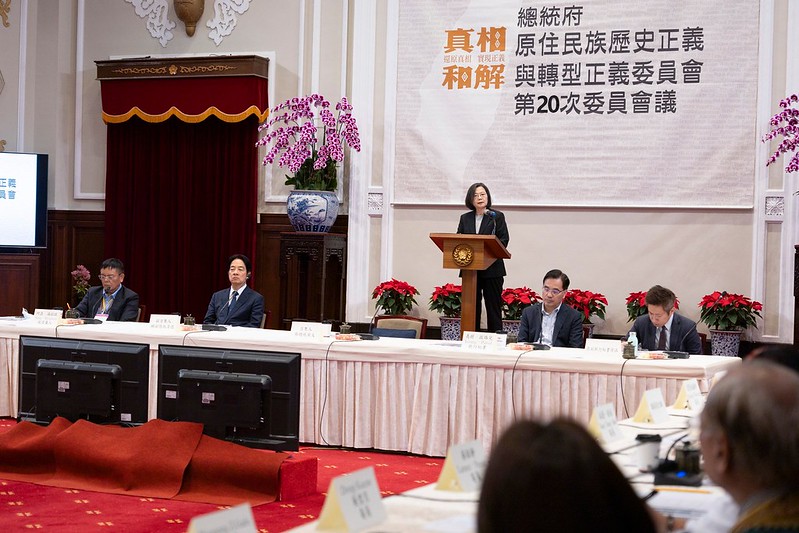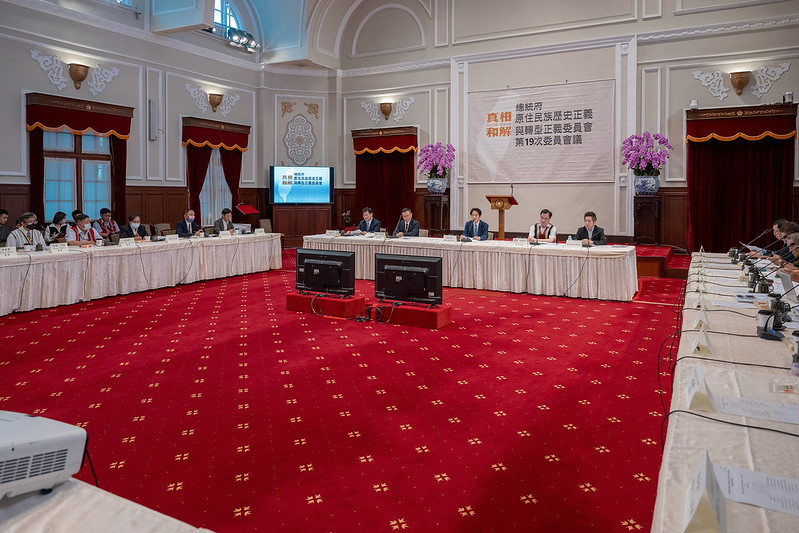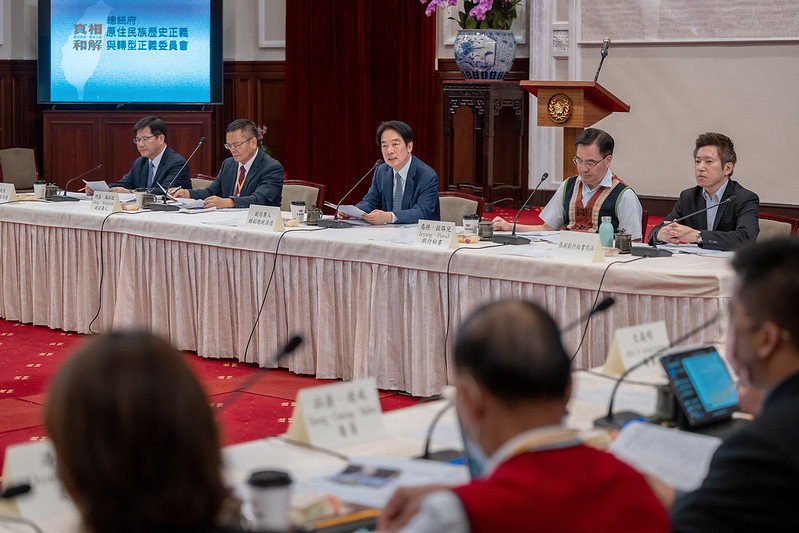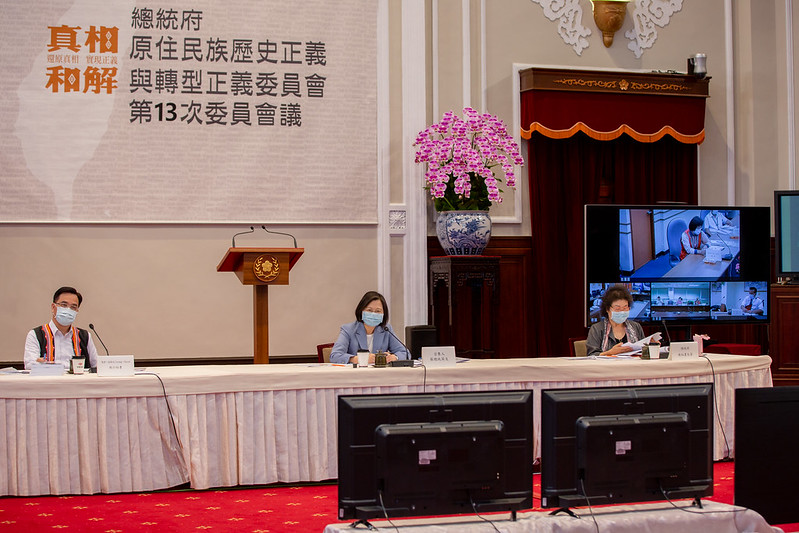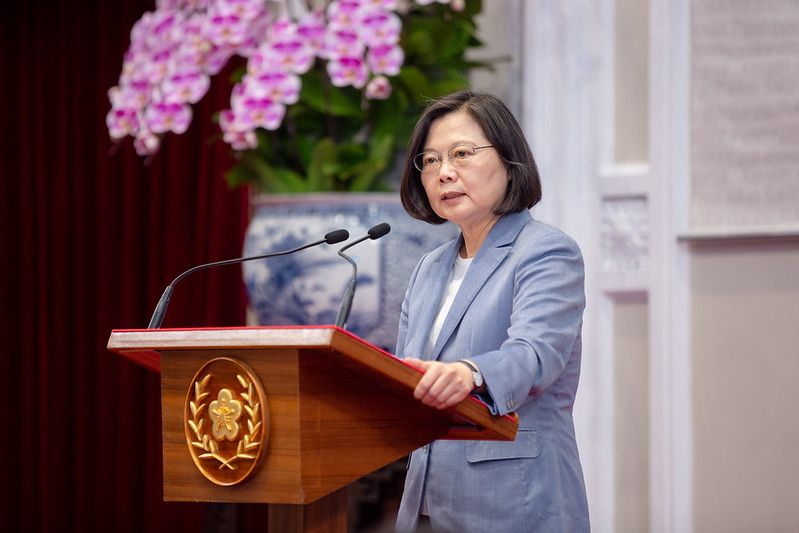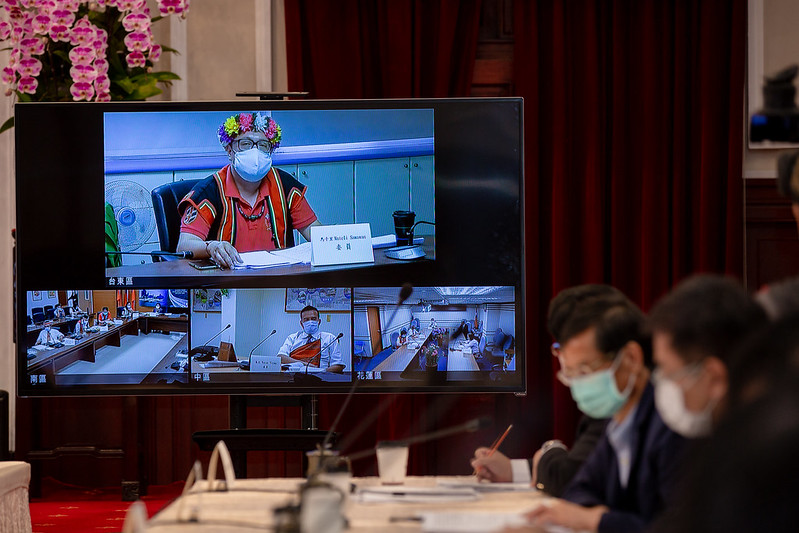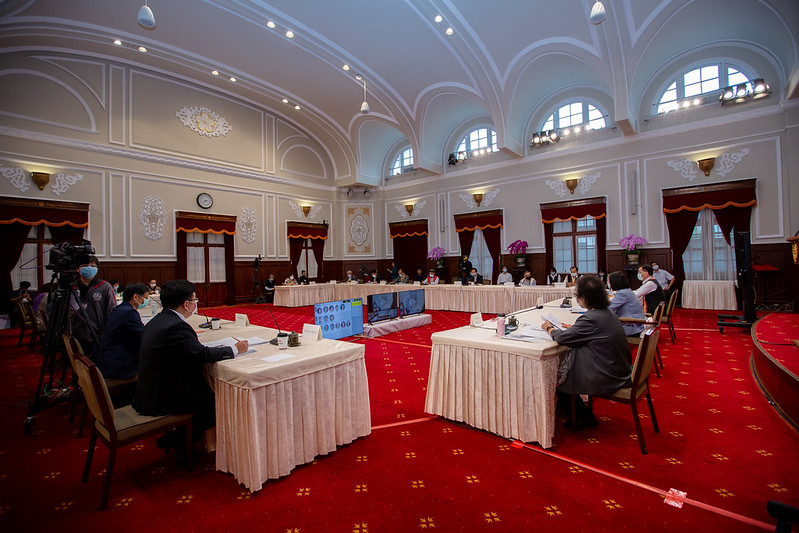News & activities
 News releases
News releases
President Tsai Ing-wen presided over the 13th meeting of the Presidential Office Indigenous Historical Justice and Transitional Justice Committee ("the Committee") on the afternoon of May 7. During the meeting, the president stated that the quest to achieve historical justice and transitional justice for indigenous peoples started from the ground up over three years ago, and it has already begun to yield a steady stream of results. After the second-term Committee reaches the end of its term on May 19, she said, our government will continue to promote a third-term Committee, as well as the continued pursuit of historical justice and transitional justice for indigenous peoples.
A translation of President Tsai's remarks follows:
Today marks the final meeting of the second-term Committee. Due to the COVID-19 outbreak, we have arranged a rather special format for this meeting, holding it via videoconference grouped by region.
I just now exchanged greetings via video with committee members from each region. I want to thank our staffers and tech support unit for all your hard work to overcome technical difficulties.
From the different regional groups present in our videoconference, you can see that our Committee members come from all around the country. You all belong to different tribes, but over the past three-plus years we've gathered together to engage in dialogue, seek the truth, and achieve historical justice and transitional justice for Taiwan's indigenous peoples.
Every discussion that we have engaged in has served as an important reference in our government's policymaking process. For example, Committee members contributed to the enactment and implementation of the "Indigenous Languages Development Act," as well as amendments to the "Education Act for Indigenous Peoples" and the "Slopeland Conservation and Utilization Act."
We have also seen how the Ministry of Education actively sought input from Committee members and subcommittees when drafting its new 12-Year Basic Education curriculum. This has also been the case with the Ministry of Culture's Taiwan Cultural Memory Bank, the Forestry Bureau's natural resources co-management system, and the Transitional Justice Commission's pursuit of transitional justice for Taiwan's authoritarian period. This has ensured that new policies have reflected indigenous viewpoints.
There are many other similar examples. Today, we are going to hear a report on the Committee's achievements over the past three years. Presentations will be made by staff units and by each of the five subcommittees.
As the report will show, the quest to achieve historical justice and transitional justice for indigenous peoples started from the ground up over three years ago, and it has already begun to yield a steady stream of results. At the same time, we have learned that seeking historical truth and being understood and respected are of great importance to our indigenous friends.
I therefore want to formally announce that after the second-term Committee reaches the end of its term on May 19, we will use suggestions from Committee members and all corners of society as a reference to promote a third-term Committee and continue the pursuit of historical justice and transitional justice for Taiwan's indigenous peoples.
Today is a "comma," not a "period." So, let us get started with today's unique videoconference proceedings.
After completing her remarks, the president received a report on the Committees achievements over the past three years and was briefed on the progress of the work of the five subcommittees.
